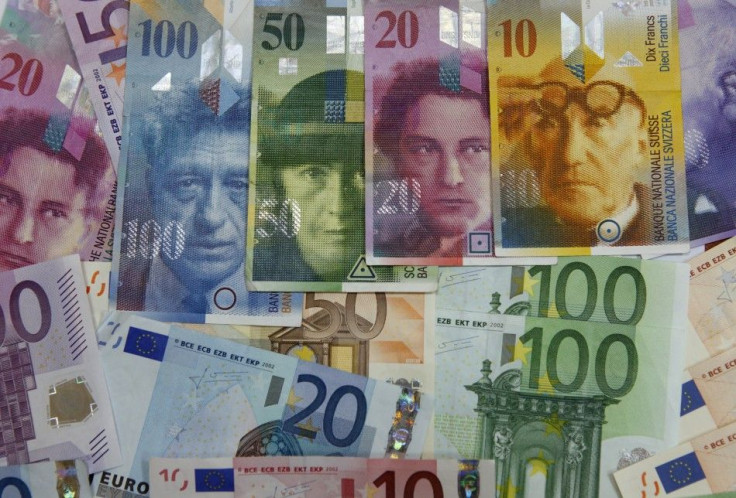Dollar hits record low versus Swiss franc on debt standoff

The dollar slumped to a record low against the Swiss franc and a four-month trough versus the yen on Monday, with more losses seen if U.S. lawmakers fail to compromise on a deficit reduction plan.
With a little more than a week before the August 2 deadline to raise the $14.3 trillion U.S. debt ceiling, there is an ever-increasing threat of a ratings downgrade and default, an event that could cause a frenzy in financial markets.
Congressional Democrats and Republicans pursued separate budget proposals with no clear path to bring them together.
U.S. Senate Democrats would offer a $2.7 trillion spending-cut plan while U.S. House Speaker John Boehner, the top Republican candidate in Congress, introduced a new plan on Monday.
President Obama will make an address on the debt limit at 9 p.m. EDT.
"While investors still appear to be giving Washington lawmakers the benefit of the doubt that they will reach a deal, every day that passes without a resolution will likely see markets price in a higher risk premium into the dollar's valuation," said Omer Esiner, chief market analyst at Commonwealth Foreign Exchange in Washington.
SWISS FRANC SOARS
Overall, the Swiss franc was the biggest beneficiary of the demand for safe havens, pushing the dollar to an all-time low of 0.80210 francs on trading platform EBS. The dollar has fallen in three of the last four sessions against the Swiss currency. It last traded at 0.8058, down 1.5 percent on the day.
"While a deal is still likely to be reached in the 11th hour every day that passes is likely to see investors become increasingly unwilling to hold dollar denominated assets," Esiner said.
The euro also fell versus the franc, dropping as much as 1.7 percent, as did sterling. Traders reported heavy selling of the pound ahead of Tuesday's UK gross domestic product data for the second quarter.
The U.S. debt ceiling stalemate, however, helped the euro gain against the dollar. It last traded at $1.4374, up 0.2 percent on the day, according to Reuters data.
Moody's further slashing of Greece's debt rating on Monday did not benefit the dollar much as a safe-haven alternative to the euro but instead boosted the Swiss franc and gold.
Despite the new bailout introduced by the European Union last week, there are still unanswered questions on how the group plans to implement the unprecedented measures, according to David Song, currency analyst at DailyFX in New York.
"In turn, the European Central Bank may show an increased willingness to keep the benchmark interest rate at 1.50 percent for the remainder of the year, and the Governing Council may have little choice but to maintain its unconventional tools as the EU struggles to address the sovereign debt crisis."
Against the yen, the dollar fell as low as 78.055 yen, its weakest since mid-March.
Many traders say the dollar could test a record low of 76.250 yen if concerns about the U.S. debt ceiling worsen, while they also expect the U.S. currency will keep plumbing all-time troughs versus the Swiss franc.
In related news, global foreign exchange turnover rose in April from October, driven by increasing volume across spot, forwards, swaps and options activities, according to a semiannual survey released by major central banks on Monday.
The ICE Futures' dollar index .DXY slipped 0.1 percent to 74.108, not far from a six-week low of 73.889 hit last week.
© Copyright Thomson Reuters {{Year}}. All rights reserved.





















